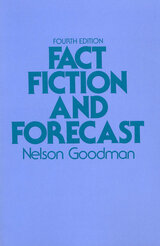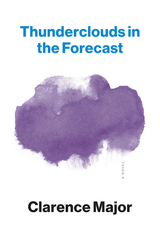
Here, in a new edition, is Nelson Goodman’s provocative philosophical classic—a book that, according to Science, “raised a storm of controversy” when it was first published in 1954, and one that remains on the front lines of philosophical debate.
How is it that we feel confident in generalizing from experience in some ways but not in others? How are generalizations that are warranted to be distinguished from those that are not? Goodman shows that these questions resist formal solution and his demonstration has been taken by nativists like Chomsky and Fodor as proof that neither scientific induction nor ordinary learning can proceed without an a priori, or innate, ordering of hypotheses.
In his new foreword to this edition, Hilary Putnam forcefully rejects these nativist claims. The controversy surrounding these unsolved problems is as relevant to the psychology of cognitive development as it is to the philosophy of science. No serious student of either discipline can afford to misunderstand Goodman’s classic argument.

This book describes and contrasts various psychiatric teaching programs in medical schools. After an examination of the differing and frequently unsatisfactory states of these programs, it also proposes a comprehensive plan for the future.
In preparing this study the author visited numerous medical schools, observing a wide range of teaching methods, goals, and facilities. His aim here is fourfold: to describe and compare existing medical school psychiatry programs in detail; to illustrate by example and anecdote the relation of teachers and students to these programs; to construct a synthesis of existing psychiatry programs that will offer optimum training and to outline a new program based on this synthesis and some additional proposals; and finally to show how methodology is a crucial but as yet unappreciated part of many psychiatry programs.
Dr. Werkman attempts to be a reporter in depth to his psychiatric colleagues about new and important developments in modern psychiatric teaching. The great scope and variety which the field of psychiatry has acquired since the Second World War has often meant that psychiatrists know little in detail of what their colleagues are doing. The author finds as well that there is often a lack of communication both within a single department and between departments in different medical schools, and that the attitude of many non-psychiatrists on the faculties ranges from ignorance to hostility--an attitude often reflected by the students.

When Ray’s train is delayed in Lorena, a Gold Rush outpost turned college town, he meets Alice. Together they embark on a romance that tempts him to stay. By the time Ray arrives in San Francisco, Scotty has abandoned his bartending job, his rented room, and his scant belongings and skipped town with a married woman from Lorena. Now Ray has more than one reason to return.
A preeminent American writer who thrives on reinvention, Major returns with an unforgettable exploration of life on the brink of sweeping change. With spare prose and subtle poignancy, Thunderclouds in the Forecast probes love, loyalty, and belonging. As Toni Morrison wrote, “Clarence Major has a remarkable mind and the talent to match.”
READERS
Browse our collection.
PUBLISHERS
See BiblioVault's publisher services.
STUDENT SERVICES
Files for college accessibility offices.
UChicago Accessibility Resources
home | accessibility | search | about | contact us
BiblioVault ® 2001 - 2024
The University of Chicago Press









